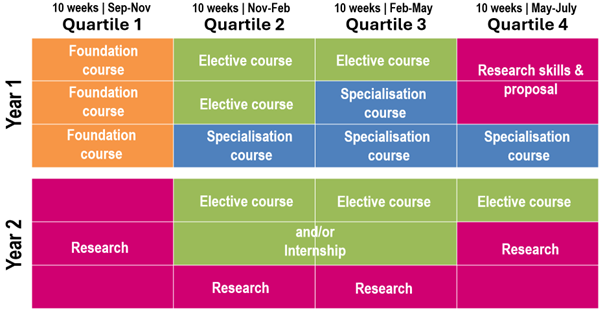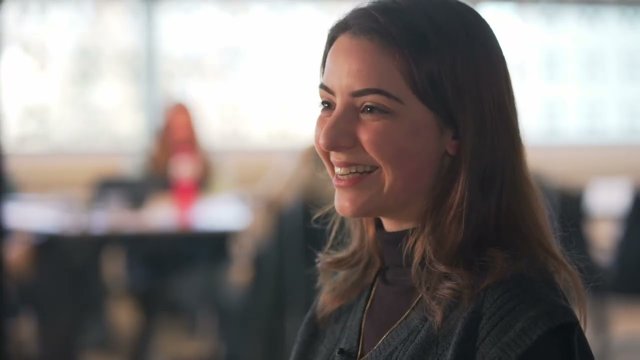YOU HAVE A LOT OF FREEDOM TO CUSTOMISE YOUR MASTER’S IN GEO-INFORMATION SCIENCE AND EARTH OBSERVATION.
Within the Master’s in Geo-Information Science and Earth Observation, you build expertise in either general spatial data science or a specific thematic application area, centred around technologies (Geo-AI), the natural environment (Resource Security), or society (Urban Futures and Disaster Resilience). In addition, you can tailor your Master’s to your interests and ambitions by choosing elective courses. The freedom to customise your programme will ensure you become the geo-information specialist you want to be.
Overview of the Master’s
For the Master’s programme you will need to complete a total of 120 credits in 2 years. Each academic year is divided into four quartiles. Within each quartile, all courses run over 10 weeks according to the academic calendar of the University. The start and end dates of all courses in a quartile are therefore the same. Within each week of a quartile, the study load per course can vary. However, the average study load per week is around 42 hours.
Our courses are each 5EC with a few at 2.5EC. In brief our Master’s is broken down into 4 parts so that you develop the technical and theoretical giscience skills along with specific skills in an area of interest through the specialisations, while also further developing your professional skills needed in the workplace.

Composing and Designing Your Master's
We provide a Master’s where you can choose a pathway suitable for your career goals and background interest where you will need to select a specialisation.
Find out more
Are you interested in this Master’s and do you want to know more about your study programme and how to compose it? For example, are you curious about the choice topics, or the learning outcomes? You can find out all about it in our Online Study Guide*.
* You are looking at the Study Guide of the current academic year. We always have the desire to strive for improvement. Therefore the course structure is subject to change.


